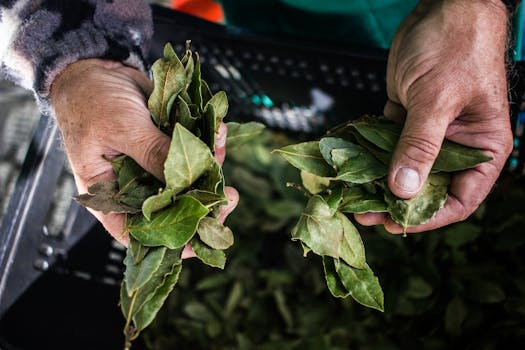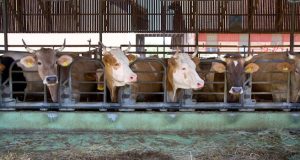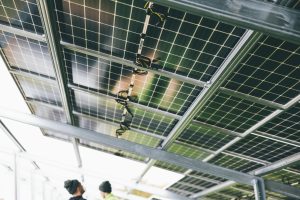Regenerative Farming: The Future of Sustainable Food Production
The current state of our world’s food production and agricultural practices is cause for concern. From environmental degradation and depleted soil to the prevalence of unsustainable and unhealthy food options, the way we produce and consume food is simply not sustainable. However, there is an emerging solution that has the potential to not only address these issues, but also revolutionize the way we think about food production. I am referring to regenerative farming, a holistic farming approach that is gaining traction around the world as the future of sustainable food production.
The Basics of Regenerative Farming
Regenerative farming is a method of farming that goes beyond sustainable practices. The goal of regenerative farming is to not only minimize harm to the environment, but to actively regenerate and improve the health and productivity of the land. It is often referred to as “regenerative agriculture” because it not only focuses on soil health, but also takes into account the interconnectedness of all aspects of the environment – from water and air quality to biodiversity and overall ecosystem health.
At the core of regenerative farming is the belief that healthy soil leads to healthy plants, which in turn leads to healthy animals and ultimately, healthy humans. By focusing on building and maintaining soil health, regenerative farmers are able to produce food that is not only nutritious, but also has a positive impact on the environment.
The Problems with Modern Agricultural Practices
To understand why regenerative farming is the future of sustainable food production, it is important to first highlight the issues with current agricultural practices. The most widely used form of farming today is conventional agriculture, which relies heavily on synthetic fertilizers and pesticides. While this method has allowed for increased crop yields and cheap food prices, it has also led to a host of environmental and health problems.
The use of synthetic fertilizers and pesticides has contributed to the loss of biodiversity, soil erosion, and depletion of essential nutrients in the soil. These chemicals also pose a threat to human health, as they can contaminate our water and food sources. Additionally, conventional agriculture is heavily reliant on fossil fuels, contributing to greenhouse gas emissions and climate change.
The Benefits of Regenerative Farming
Regenerative farming offers a solution to these issues by prioritizing the health of the soil and ecosystem. By using natural methods such as crop rotation, cover cropping, and composting, regenerative farmers are able to improve soil health and fertility. In doing so, they are able to reduce the need for synthetic inputs, making the food produced more sustainable and environmentally friendly.
But the benefits of regenerative farming don’t stop there. By focusing on improving soil health, regenerative farmers are also able to sequester carbon from the atmosphere. Healthy soil is able to store large amounts of carbon, making regenerative farming a powerful tool in the fight against climate change.
Additionally, regenerative farming practices can lead to increased biodiversity on the farm, creating habitats for pollinators and other beneficial insects. This not only helps to maintain a healthy ecosystem, but also improves crop yields through natural pest control.
The Future of Sustainable Food Production
In the face of a changing climate and a growing global population, the need for sustainable food production is more urgent than ever. And regenerative farming is proving to be a promising solution. Not only does it have the potential to mitigate the negative impacts of conventional agriculture, but it also offers a way to not just sustain, but improve the health of our environment and communities.
As consumers become more conscious of the impact of their food choices, there is also a growing demand for sustainable and ethically produced food. In this regard, regenerative farming has the potential to not only secure a better future for our planet, but also provide a promising economic opportunity for farmers.
Conclusion
In conclusion, regenerative farming is more than just a buzzword – it is a necessary step towards a sustainable future. By prioritizing soil health and creating a regenerative cycle, this farming approach has the potential to transform our food system and improve the health of both people and the planet. It is up to us, as consumers, to support and encourage the growth of regenerative farming practices, and make the future of sustainable food production a reality.











